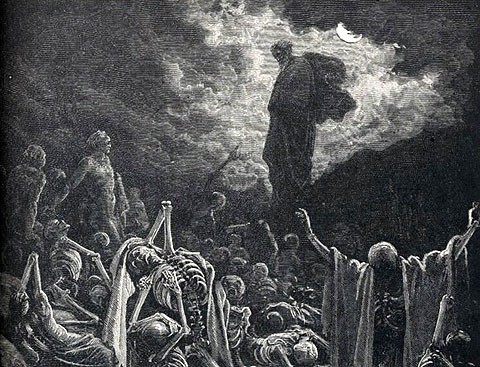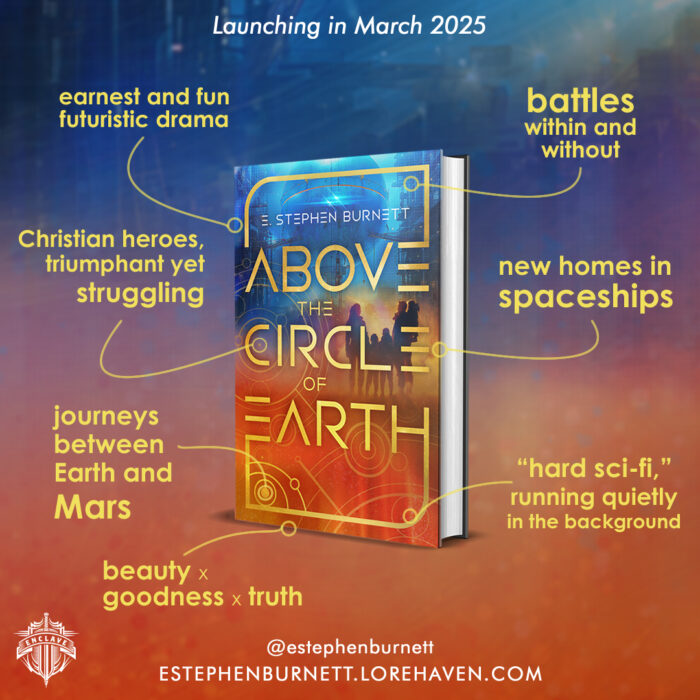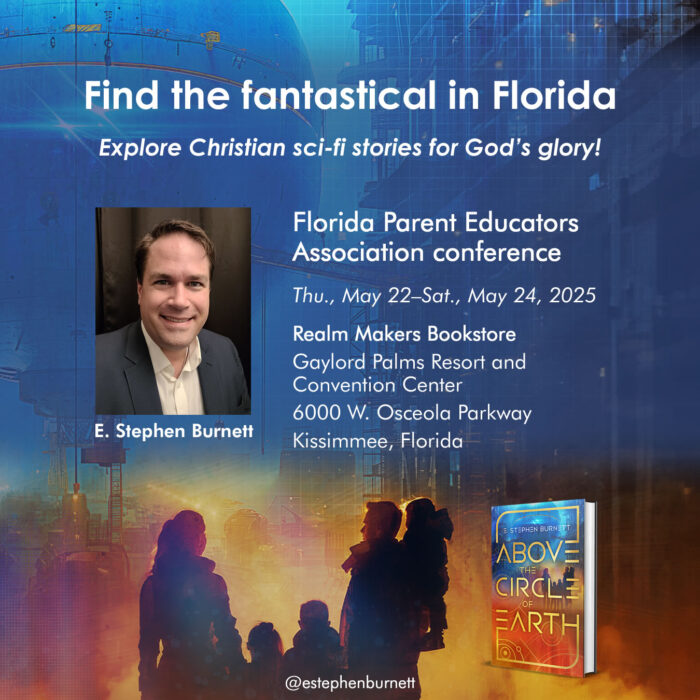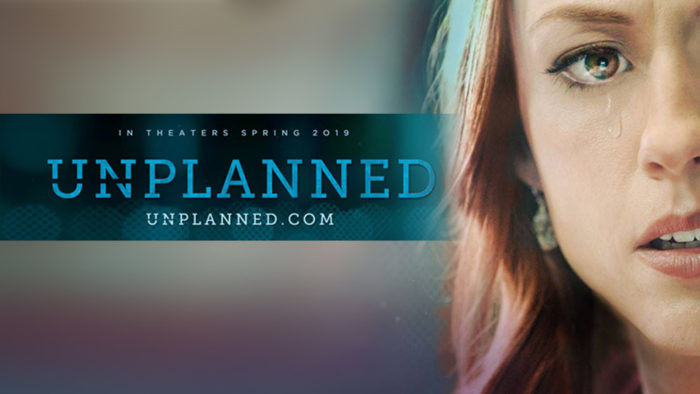Three Reasons Why Pure Flix Needs to Make R-Rated Movies
Over the weekend we learned Pure Flix’s latest movie, Unplanned, will be rated R.1
Here’s the story from The Hollywood Reporter:
Pure Flix Entertainment, the family friendly label known for distributing God’s Not Dead and a few dozen other movies aimed at Christians, will release its first R-rated film next month, and it is none too happy about having to do so.
The film, Unplanned, tells the true story of Abby Johnson, who defected from Planned Parenthood to become a pro-life activist. While the filmmakers were certain they were making a PG-13 film, the MPAA has informed them that it will, in fact, be rated R unless all scenes of abortions are removed or altered.
The filmmakers are refusing to change anything, putting Pure Flix in the awkward position of having to open an R-rated movie on March 29. The company’s other releases, roughly two dozen movies, were all rated G, PG or PG-13.
“A 15-year old girl can get an abortion without her parent’s permission but she can’t see this movie without adult supervision? That’s sad,” said Ken Rather, the executive vp of distribution for Pure Flix.2
At first I wasn’t sure whether to be happy about this or simply amused. After chuckling a bit at the irony, I realized this is a good sign of growth for Christian movies.
In fact, I think Pure Flix should intentionally make more films that could be rated R. So should other Christian filmmakers.
Here are three reasons why.
1. Unplanned‘s R-rating is for good reason.
Not all R-rated movies get that rating for the same reason.
They’re not all full of explicit or gratuitous images of sex and violence. They’re not all nihilistic or exploitative.
Christians already “practiced” viewing at least some R-rated films redemptively in 2004. That’s when Mel Gibson released his film The Passion of the Christ. Yes, it was intense. It had a lot of violence, especially during the (often arguably overdone) scene of Roman soldiers scourging Jesus. But most Christians reacted with maturity. They understood that if any visual story required portrayal of violence, then it’s the story of Christ’s brutal torture and execution—the very means of God reconciling his wrath against sin and his mercy toward humans.
I think many Christians also understand that humans sometimes need to see violence. Even culturally separatist Christian leaders don’t usually condemn Christian soldiers or emergency room nurses for seeing torn-apart bodies, either in images or in real life.
Most Christians also make room for soberly facing the truth about a socially approved evil, such as lynching, povery, or abortion.
So far, Unplanned‘s social media folks offered a similar mature response. They rightly presume that not all R-rated movies are nihilism– or slash– or sex-fests. Instead, they offer chances for spiritually strong viewers, such as Christian parents, and spiritually growing viewers, such as children, to see and discuss the story together.
2. ‘The world is rated R, and no one is checking IDs.’

By the way, N. D. Wilson will appear at next month’s Great Homeschool Convention in Fort Worth, Texas. I’m also going there to aid the Realm Makers Bookstore and represent Lorehaven Magazine.
The phrase comes from fantasy author and poet-theologian N. D. Wilson:
The world is rated R, and no one is checking IDs. Do not try to make it G by imagining the shadows away. Do not try to hide your children from the world forever, but do not try to pretend there is no danger. Train them. Give them sharp eyes and bellies full of laughter. Make them dangerous. Make them yeast, and when they’ve grown, they will pollute the shadows.3
If the real world is rated R, and Christian-made movies intend to show the real world, then it makes little sense to emphasize only movies that can be rated G (or only PG, or only PG-13).
Otherwise, at best, we really are trying to be “more spiritual than God.”
What if we (understandably) argue that Christian movie audiences won’t support this kind of truth-telling-with-violence? In that case, we are dangerously close to accepting a kind of “bribe” to ignore injustice.4 No, it’s not a de facto bribe from those who commit injustice. But it is a kind of “bribe” from other people who’d just as soon not confront the real-world consequences of the injustice.
3. Christ’s people are no longer corrupted by dead bodies; instead, we can help resurrect them.

Ezekiel 37’s image of God resurrecting a valley of dead bones shows perhaps the most beautiful image of resurrection in all the Old Testament.
Some biblical Christians are more thoughtful and less reactionary about the concept of violent images or content.
At the back of their minds, they may remember biblical prohibitions against touching dead human bodies.5 Or they may remember plenty of other ceremonial laws against handling animals, food, or objects God deemed “unclean.”
Christians like to debate about how and why God made these distinctions for Israel. We must note, however, that Jesus Christ, the ultimate fulfillment of God’s Law,6 literally touched dead bodies on several incredible occasions. But what happened when he did? Instead of Jesus becoming ceremonially unclean, these people returned to life. Death did not ceremonially corrupt Jesus. Instead, his life flowed out and (temporarily) resurrected the dead persons Jesus touched.
This truth helps remind Jesus’s people that we experience Jesus’s fulfillment of the Law. We are no longer bound to follow the Law’s ceremonial aspects, including its division between “clean” and “unclean.”
This means that Christians can work in nursing, funeral homes, or crime forensics—washing to avoid germs, but without need to avoid ceremonial uncleanness.
This also means that as Christians spread the gospel to every part of the Earth, we take part in Jesus’s long-range spiritual resurrection project. Every day we encounter members of the spiritual walking dead, that is, persons dead in their trespasses and sins. Yet through the work of the Holy Spirit, through the gospel shared by redeemed saints, we get to see people come to life in Christ.7
If we feared touching dead people, we couldn’t do a lot of God’s work on Earth.
If we still spiritually feared touching spiritually dead people, we would end up disobeying Jesus’s Great Commission.
Finale: To see light best, you need to consider the darkness
“Violence [in fiction] has to have a very specific reason: to show the result of evil.”
— fantastical thriller novelist Robert Liparulo“If you make life too antiseptic, you discredit how difficult it is to be faithful.”
— storyteller Carla Cook Hoch, FightWrite.net
For more about the biblical place of violence in stories, see “Roundtable: Engaging Fictional Violence in Our Real Worlds,” Lorehaven Magazine (spring 2018).
But notice this: We wouldn’t find delight or relief in ministering to (spiritually) dead people if we didn’t first know about the Law. First we had to know how hazardous dead bodies could have been before we could find joy in the life of Jesus.
Similarly, people can’t know about the wonders of saving faith unless they also face the horror of death.
That’s why I hope this film commits to showing, at least somewhat honestly, what actually happens in abortion. And I hope this company, as well as other Christian filmmakers, will understand the reasons to attempt other material that could become rated R.
Not to be “edgy.” Not to indulge in violence for violence’s own sake. And not just to try to “get people saved.”
Instead, stories that show evil darkness and death can help us better see Jesus Christ’s light and life.
Just like the Bible does. Just like the testimonies of people who had killed their children, and/or “lived” in spiritual death until Jesus saved them. And just like the best human-made stories that thoughtfully explore evil villainy so we can rejoice when a good hero finally defeats it.
- Clarification: Pure Flix did not produce Unplanned, but is only distributing the film. It was not originally planned to be rated R. ↩
- Paul Bond, “MPAA’s R-Rating for Anti-Abortion Film Disputed by Distributor Pure Flix,” The Hollywood Reporter, Feb. 22, 2019. ↩
- N. D. Wilson, Notes From The Tilt-A-Whirl: Wide-Eyed Wonder in God’s Spoken World. ↩
- Scripture implicitly forbids this kind of bribe-taking, and explicitly forbids this in texts such as Deuteronomy 16:19. ↩
- See Numbers 9: 1–14; 19:13. ↩
- Matthew 5:17; see also Hebrews 1. ↩
- Ephesians 2: 1–10. ↩


















Stephen, this was the spirit in which I wrote my first book, CAIN. It’s garnered wildly differing reviews for different reasons. Most of the 1-star reviews still state the book is “well-written.” The problem is two-fold. But the first problem is the obvious violence (it’s not a perfect book by any means). I felt that to tone down the disturbing elements of violence would let the reader side with the villain too easily. I felt it would be doing something potentially sinful to make it less violent. I still feel that conviction, though maybe I interpret it a bit differently now. But what I learned is that if you make anything disturbing for a Christian audience, they will insult and hate you for it.
I think sometimes, we should be disturbed.
I agree, and that’s why my stories have a lot of dark and tragic content.
Movie ratings are weird, though. Like, sometimes an R rated movie’s largest fault could just the amount of times it drops an F bomb, and everything else about it is perfectly PG-13.
I couldn’t agree more! Everyone needs to be told reality, not that everything is blis. Besides purflix has cheesy movies, and their supposed pg 13 movies aren’t really pg there just pg. I think they should put more realistic movies in their thriller contents.